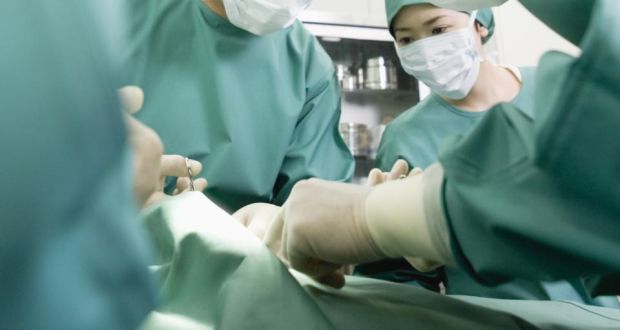Sex reassignment surgery (SRS) is performed to transition people with gender dysphoria to their identified gender. With male to female gender reassignment surgery, the male genitals are reshaped into a form with the appearance and function of female genitalia. Let’s take a look at the top facts about sex reassignment surgery to help you get a better understanding of the procedure.

- Transgender and Transsexual are two different terms
Transgender and transsexual are frequently confused terms. While both talk about gender identity, they are actually two different terms. Transgender is a broader category that includes every individual who does not identify with the gender they were assigned at birth. The assigned gender is usually based on the appearance of the external genitalia.
Transsexual includes individuals who want (or have undergone surgery/medical treatment) to physically transition to the sex that corresponds to the gender they identify with. All transsexual persons are transgender, but not all transgender persons are transsexual. Note that the word “gender” is often used to talk about social and cultural roles, but the word “sex” refers to physical attributes.
- The reason why someone chooses to undergo surgery
Changing their gender appearance with hormone therapy, and sex reassignment surgery allows their external appearance to match what they feel on the inside.
- What’s involved in transitioning to another gender
Transitioning from male to female usually involve:
- Dressing and living as a female without surgery.
- Taking hormones and/or surgically removing or modifying the genitals and reproductive organs.
- Steps before sex reassignment surgery
Before surgery is performed, there are steps that must be taken, which include:
- An evaluation of mental health is required to look for any mental health concerns that could possibly influence a person’s mental state. The evaluation will also assess an individual’s readiness to undergo the physical and emotional stresses involved with the transition.
- Consistent and clear documentation of gender dysphoria. A “real-life experience,” which is a test where an individual takes on the role of the desired sex in their everyday activities, both socially and professionally.
- Hormone therapy plays a role in transitioning
For transgender individuals who want to undergo surgery, hormone therapy (HT) involves taking estrogen to transition from male to female. Hormone therapy can be used before, during, and after the surgical transition.
- Estrogen and its effects on males
Changes in a reduction in male sexual characteristics and an increase in female characteristics may happen when a biological male takes estrogen, as it will cause changes to both the body and in behavior.
Changes to the body may include:
- Loss of erection
- Shrinkage of testicles
- Development of breasts
- Decreased acne
- Decreased muscle mass
- Decreased muscle strength
- Decreased facial and body hair
- Slowing of balding
- Softer and smoother skin
- Redistribution of fat from the abdomen to the thighs, hips, and buttocks.
Changes to behavior may include:
- Mood swings
- Decreased sex drive
The feminizing effects usually appear after the first couple of doses of estrogen. However, it may take several years before a person is adequately transitioned, particularly for breast development.
- The process of surgery
Surgery cannot be performed until at least a year after the start of hormone therapy and two years after the first evaluation of mental health. The process of the surgery itself can be different depending on the number of procedures involved.
Procedures involved in sex reassignment surgery are usually divided into two categories: those that happen above the belt (top surgery) and those that happen below (bottom surgery). The procedures can be personalized according to the person’s needs and desires. The procedures that can be considered are as follows.
Top surgery:
- Facial feminization surgery (FFS)
- Breast augmentation
- Nose surgery (rhinoplasty) to narrow down the nose
- Brow lift to feminize the position and curvature of the eyebrows
- Chin reduction to make the chin more delicate
- Jaw surgery to shave down the jaw bone to appear more feminine
- A lip lift
- Enhanced cheekbones via collagen injections and/or other techniques
- Female hairline creation
- Male pattern hair removal
- Adam’s apple reduction
- Voice change surgery
Bottom surgery:
- Penis removal (penectomy) and scrotum (orchiectomy)
- Vagina and labia creation (feminizing genitoplasty)
- Side effects and complications
Any surgery and medical procedure comes with potential risks and side effects. Estrogen therapy has been linked to an elevated risk of blood clots for transgender women. Also, hormone therapy increases the risk of breast cancer. With surgery, individuals are faced with bleeding, infection, and allergic reaction to the anesthetic. Therefore, those who are considering sex reassignment surgery should have a discussion with their doctor about the potential risks of both hormone therapy and surgery.
- Quality of life following surgery
Quality of life following male to female sex reassignment surgery appears to significantly improve. According to a study, surgical satisfaction ranges between 94% and 100%. Since sex reassignment surgery involves many steps and sometimes uncomfortable procedures, this high satisfaction rate supports the benefits of surgery.
Sex reassignment surgery is a life-changing procedure that should never be taken lightly. Therefore, to achieve the best results, make sure the surgeon and medical team are highly-qualified and certified. If you don’t know where to find one, visit MyMediTravel and request a free quote!

